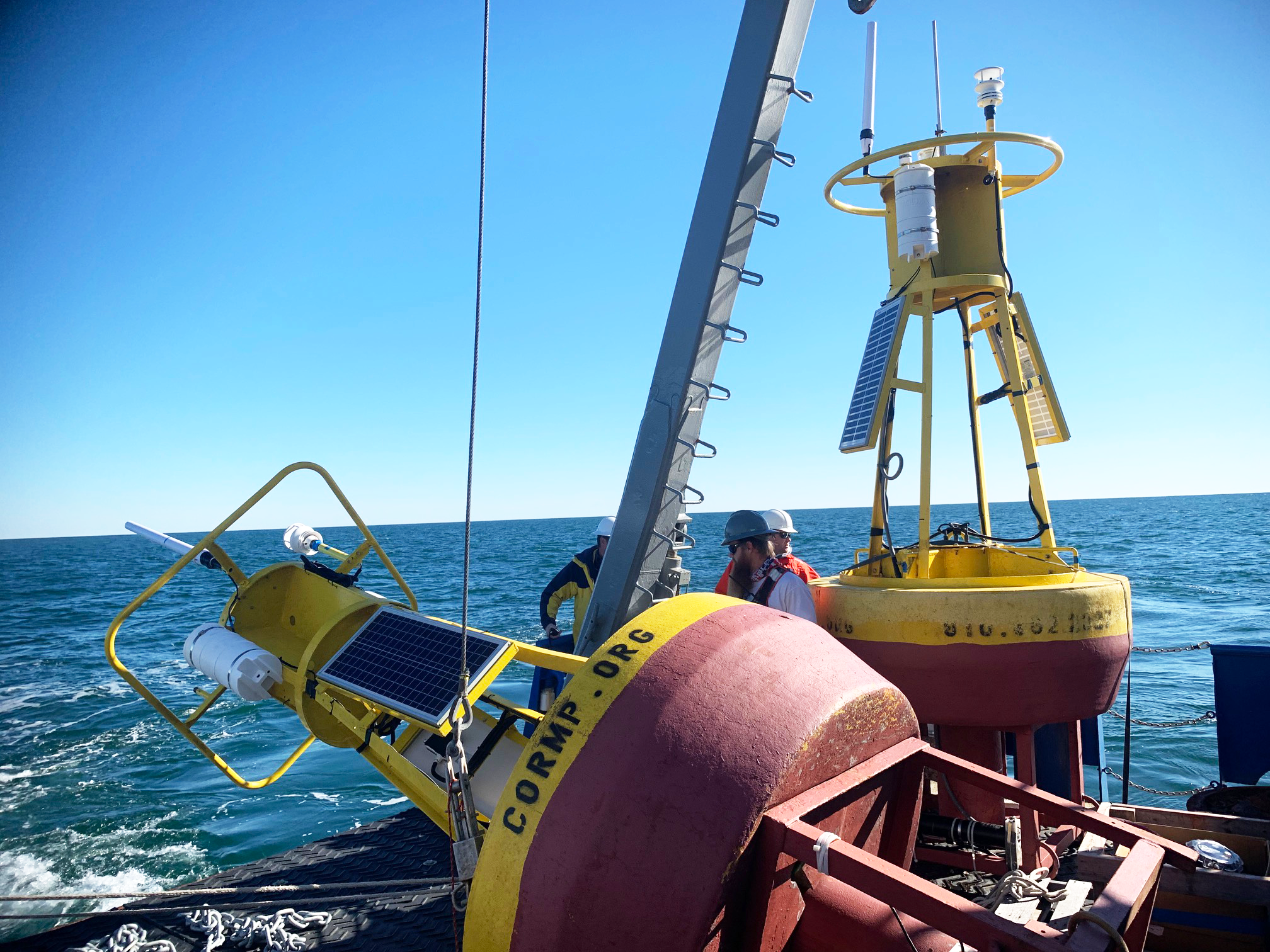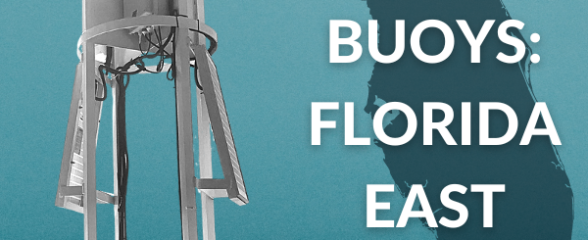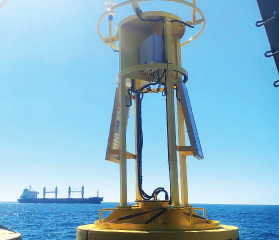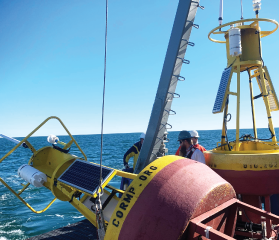
UNCW’s Coastal Ocean Research and Monitoring Program: Optimization & Enhancement of Observing Elements in the Carolinas
Organization
University of North Carolina Wilmington
Lead
Dr. Lynn Leonard, University of North Carolina Wilmington
Status
Ongoing
Project News

New Buoys Coming to the East Coast of Florida in 2024
Dr. Leonard and her team of Co-Investigators (Florida Atlantic University Harbor Branch Oceanographic Institute, NOAA National Weather Service, FACT Network, and Second Creek Consulting) will deploy new real-time buoys in 2024 on the east coast of Florida.

New Buoys off the Coast of South Carolina Supporting Ship Operations and Harbor Pilots
Two new buoys deployed near the entrance to the Port of Charleston are supporting ship operations and harbor pilots with much needed data.

Buoy Turnaround Cruise off the Carolinas
In early February, the University of North Carolina Wilmington’s Coastal Ocean Research and Monitoring Program (UNCW CORMP) replaced buoys off the coasts of North Carolina and South Carolina.